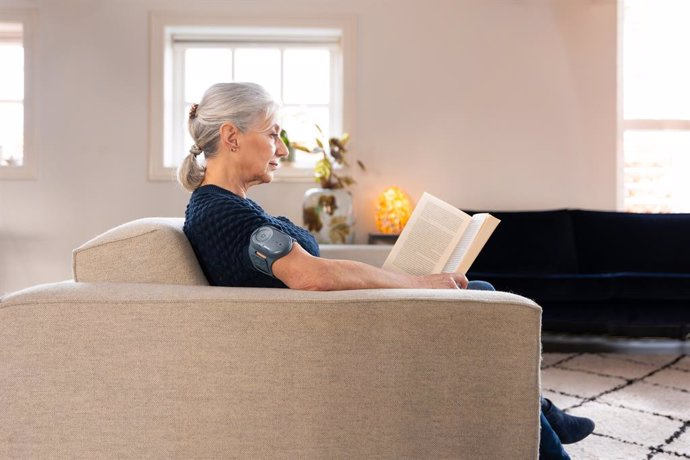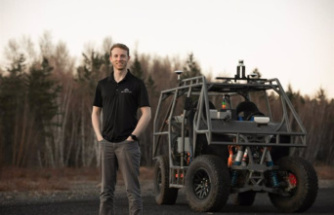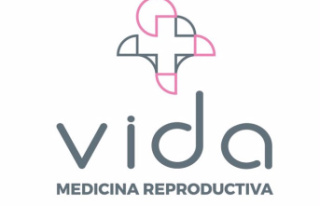(Information sent by the signatory company)
Biosensors, supported by industry-leading monitoring platforms, help reduce clinical workload and length of hospital stay for patients [1,2,3].
Royal Philips, a global leader in healthcare technology, today announced a strategic collaboration to integrate smartQare's advanced viQtor solution into Philips' world-leading clinical patient monitoring platforms. This collaboration aims to enable the next generation of continuous patient monitoring both inside and outside the hospital, starting in Europe.
The role of hospitals is changing rapidly. Staff shortages, an aging population and rising healthcare costs have sparked a demand in the healthcare community to do more with less. Thanks to biosensors, continuous monitoring has emerged as a solution to address these challenges, helping to reduce staff workload [2] and patient length of stay [3].
But implementation can be complicated, especially when the devices do not communicate with each other and the flow of patient data is interrupted in different care environments. The new Philips-smartQare alliance aims to enable open communication between sensors and systems, helping to reduce the complexity of continuous monitoring by making data and decision support accessible through easy-to-use platforms, regardless of whether the patient is still hospitalized or recovering at home.
"At Philips we recognize the need for systemic change, driven by the entire healthcare technology sector. By opening up our world-leading monitoring platform to other companies like smartQare, we can create a patient monitoring ecosystem that helps give time back to professionals to work on what matters and care for their patients with confidence," says Christoph Pedain, Business Manager Hospital Patient Monitoring at Philips. "Hospitals and health systems can then balance the need to standardize and personalize care across care settings and help improve workflows, care delivery, and patient safety," he adds.
"Combining leading biosensors and platforms into a practical, readily available solution helps healthcare systems around the world address the growing challenges caused by increasing demand for care and decreasing resources," said Walter van Kuijen. , CEO of smartQare. "At our company we are committed to unleashing the power of innovation to ensure the future accessibility and sustainability of healthcare systems, globally."
"With the advent of AI and the introduction of more specialized wearables, we can further improve the monitoring of patients inside and outside the hospital," explains Dr. Arthur Bouwman, anesthetist at the Catharina Ziekenhuis Hospital in Eindhoven and professor of perioperative monitoring. and clinical decision support at Eindhoven University of Technology. "We have learned a lot with the introduction of Healthdot. As we continue to innovate, an open ecosystem and collaboration between companies like Philips and smartQare will support easy flow of patient data and help us improve care pathways to ensure we can offer high-quality healthcare.
As part of the collaboration agreement, smartQare will acquire Philips' Healthdot business, combining this wearable biosensor with smartQare's patient monitoring solution, viQtor, through a single digital platform. In the future, Philips and smartQare will jointly offer the integrated remote patient monitoring solution to healthcare providers and patients.
Open monitoring benefits the healthcare system and its patients
By moving from proprietary standards and closed systems to an open patient monitoring infrastructure, clinicians are free to use third-party devices and wearables of their choice that communicate effortlessly across the platform. This open ecosystem approach will offer clinicians the flexibility to monitor patients before, during and after hospitalization for a unified, seamless view.
References:
[1] van der Stam, Mestrom et. al. (2022) A wearable patch based remote early warning score (REWS) in major abdominal cancer surgery patients; ESJO, vol. 49 issue 1, Sept 1 2022. https://doi.org/10.1016/j.ejso.2022.08.0...
[2] Surgical Ward Innovation: Telemonitoring Controlled by Healthdot (SWITCH), 2023. https://clinicaltrials.gov/study/NCT0595... (accedido el 01/04/2024)
[3] van Ede ES, Scheerhoorn J, Buise MP, Bouwman RA, Nienhuijs SW (2023) Telemonitoring for perioperative care of outpatient bariatric surgery: Preference-based randomized clinical trial. PLoS ONE 18(2): e0281992. https://doi.org/10.1371/journal.pone.0281992
About Royal Philips
Royal Philips (NYSE: PHG, AEX: PHI) is a leading health technology company, focused on improving people's health and well-being, and facilitating better results in the health cycle, from habits healthy and prevention, to diagnosis, treatment and home care. Philips leverages its advanced technology and deep clinical and consumer insights to deliver integrated solutions. Headquartered in the Netherlands, the company is a leader in diagnostic imaging, image-guided therapy, patient monitoring and health informatics, as well as consumer health and home care. Philips reported sales of €18.2 billion in 2023 and employs approximately 69,700 employees, with business operations and services in more than 100 countries. All news about Philips can be found in our News Center.
Issuer: Royal Philips
Contact: César García Requena Brand













